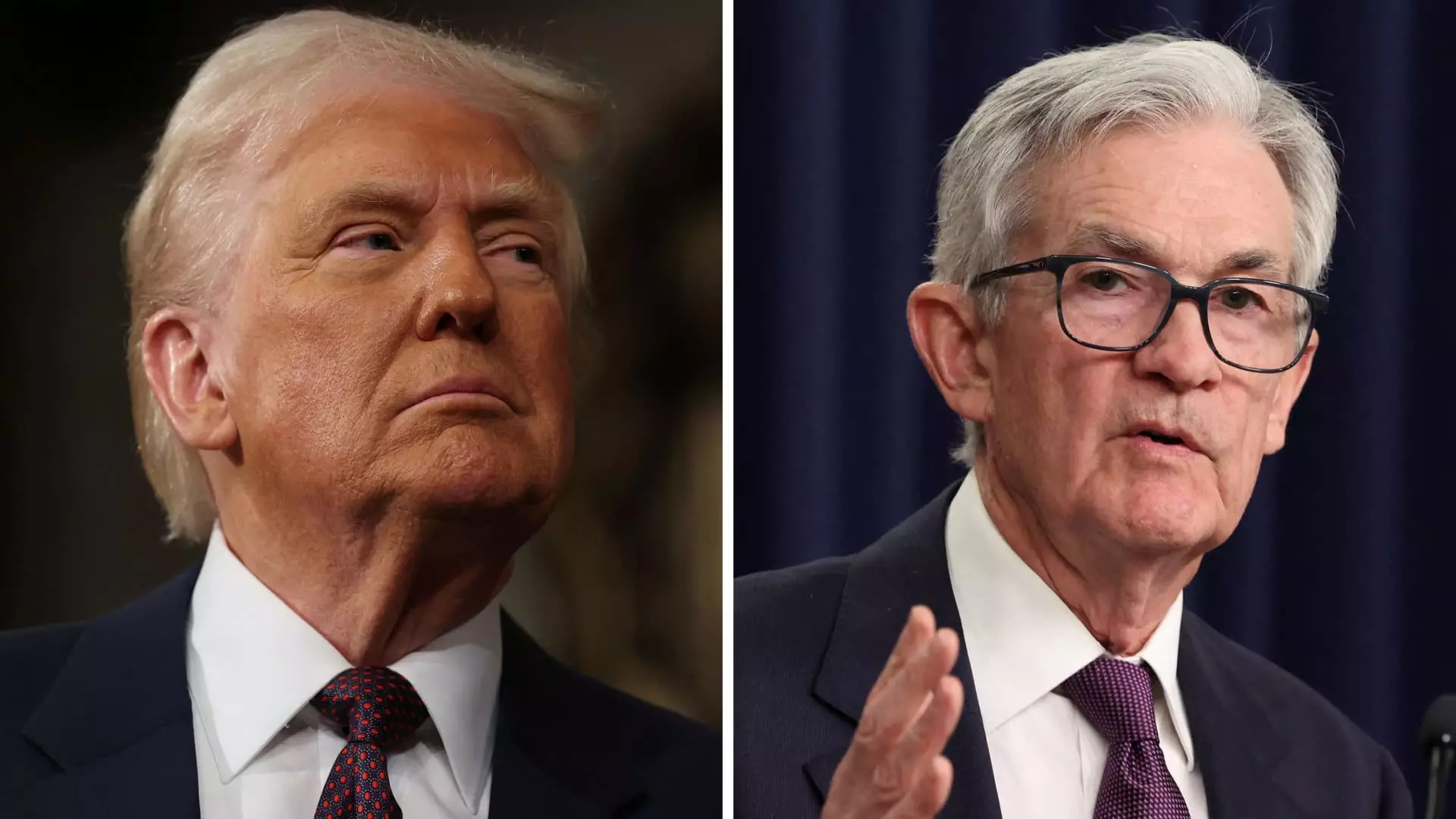In recent times, the interplay between political rhetoric and economic governance has been a source of considerable concern, particularly under the influence of former President Donald Trump. His latest call for the Federal Reserve to lower interest rates—coupled with thinly veiled threats aimed at the Fed Chair, Jerome Powell—represents a disconcerting trend where monetary policy risks being overshadowed by partisan pressures.
Trump’s commentary, posted on Truth Social, suggested a desire for the Fed to emulate the European Central Bank’s approach to cutting rates to stimulate economic growth. This comparison raises daunting questions about the implications of such a move and whether it serves the broader economic landscape or merely aligns with political aspirations for short-term success. By urging rate cuts, Trump is effectively advocating for a temporary fix that may lead to long-term economic instability.
Short-sighted Solutions: The Economic Fallout
What is profoundly distressing about Trump’s narrative is the rhetoric of “termination” regarding Powell’s leadership. Since Powell’s term as Fed Chair extends until May 2026, the mere insinuation of dismissal could undermine the Fed’s autonomy—a cornerstone of American monetary policy. Trump’s previous demand that the Fed should act sooner, while criticising Powell for being “late,” betrays a lack of understanding regarding the elaborate balancing act central banks perform between controlling inflation and fostering growth.
The broader economic implications are dire. Powell is correct in assessing the precarious position the Fed occupies, with fluctuating tariffs and inflation rates triggering uncertainty in economic forecasts. By politicizing the actions of the Fed, Trump is fostering anxiety about the very institution designed to safeguard economic stability.
The Repercussions of Misdirected Accountability
While Trump may claim to push for economic revival, the reality is that imposing political will over fiscal policy can have disastrous ramifications. History shows that economically motivated decisions often require a degree of independence to effectively navigate challenges such as inflation or recession. Trump’s approach distorts this independence, potentially eroding public confidence in fiscal institutions, which could ultimately lead to adverse outcomes for ordinary Americans who rely on economic stability for their livelihoods.
It is essential to scrutinize the forces that seek to manipulate the central bank for political gain, especially as the U.S. continues to grapple with recovery efforts post-pandemic. The Fed’s cautious stance, as indicated by Powell’s remarks during his speech in Chicago, strikes a necessary balance; however, violations of this independence can alienate investors and stifle growth.
A Call for Pragmatic Leadership
As the political landscape continues to shift, the call for more responsible dialogue surrounding monetary policy is critical. Leaders must recognize the vital role that the Federal Reserve plays in ensuring economic robustness. Instead of casting aspersions or issuing demands out of self-interest, both political leaders and citizens must advocate for policies that prioritize long-term economic health, nurtured through collaborative governance rather than capricious interference.
In a world where economic decisions can pivot on the whims of politicians, it’s crucial for stakeholders to remain vigilant and resist the allure of populist promises. Economic strategy should be rooted in empirical evidence and sound judgement, rather than influenced by transient political maneuvers and rhetoric.

Leave a Reply